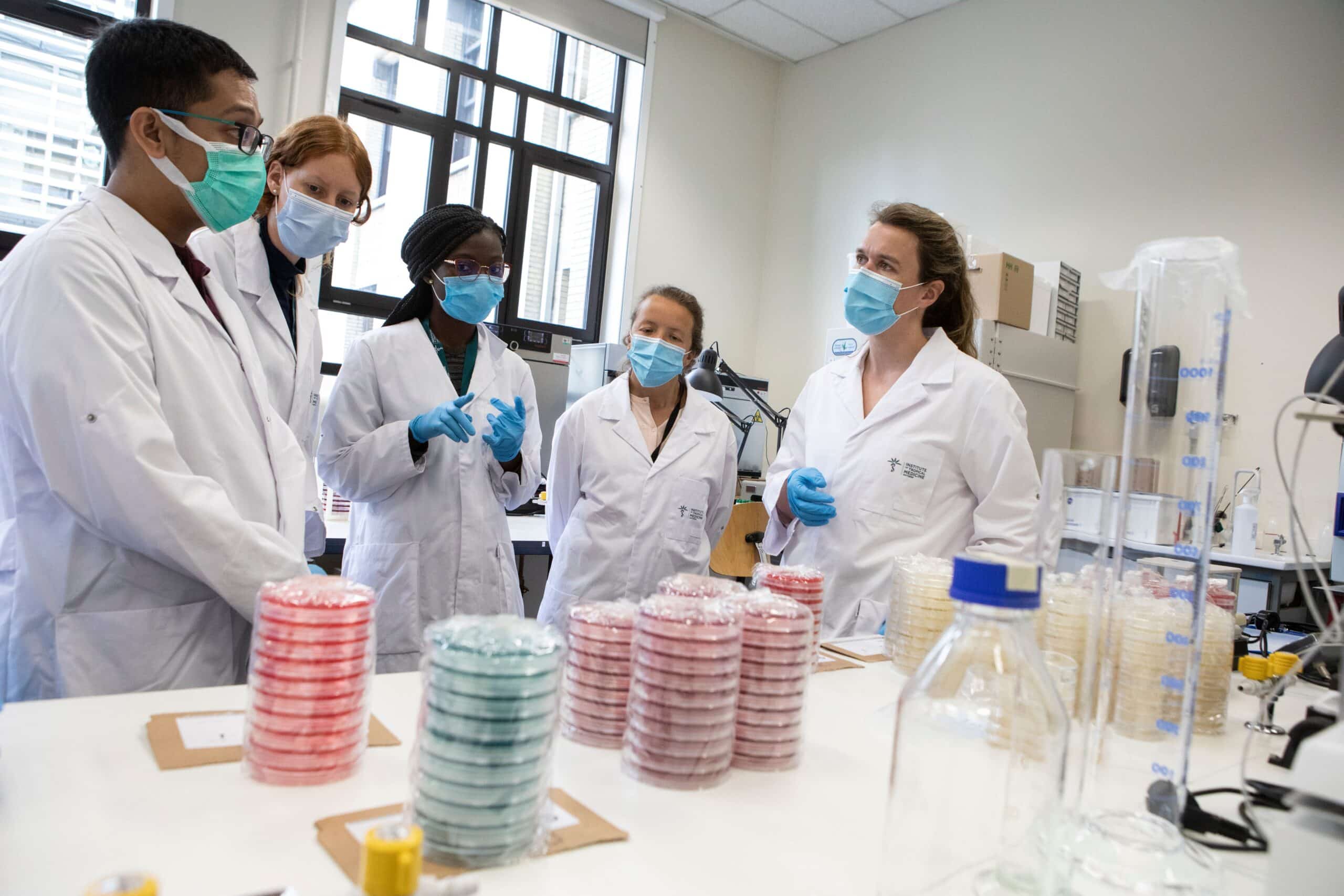Tropical and infectious diseases affect billions worldwide. In this context, conducting research is essential, but seeing the results of your study makes the work more fulfilling. After all, scientific progress and societal impact can be two sides of the same coin.
This is how the Institute of Tropical Medicine (ITM) views it, striving to advance tropical medicine and public health for all. They focus on innovative research, advanced education, professional medical services and capacity sharing with partner institutions in Africa, Asia and Latin America
The institute offers three MSc programmes: in Tropical Medicine, Public Health & Global One Health.

ITM’s MSc in Tropical Medicine has significant societal relevance in the field of tropical and (re-)emerging global infections. Source: Institute of Tropical Medicine
MSc in Tropical Medicine: Focus on pathogens and patients across the globe
Interdisciplinary, integrated and specialised, ITM’s MSc in Tropical Medicine (MTM) has two orientations: Clinical Sciences and Biomedical Sciences. Here, you develop research skills in diagnosing and managing the world’s most prevalent and re-emerging tropical diseases. This involves training in research methods and contributing to research development during fieldwork in tropical and resource-constrained settings.
“The additional aspect of fieldwork brings a different dimension to this master’s, which you won’t find in other programmes,” says Ghanaian MTM graduate Elisabeth Tabitha Abbew, who undertook her research work with Janssen Pharmaceutica, a developer and manufacturer of pharmaceutical products. Today, Elisabeth Tabitha Abbew is based in Ghana’s Cape Coast Teaching Hospital, crediting MTM for helping her set up her clinical research activities.
Graduate Jahan Mallick found the programme just as enriching and impactful. He joined the MTM programme to gain more experience in public health and tropical diseases to work in the humanitarian field.
“The forms the core module of MTM and contains a diversity of lessons on global health care, epidemiology, and the diagnosis and management of infectious diseases,” he says. “In the second semester, I got the opportunity to create an individual study plan to deepen my knowledge of certain topics that interested me, such as tuberculosis and HIV.”
In the MTM programme, learning is participatory. You’ll learn not predominantly through lectures but through a combination of interactive sessions, group work, hands-on experiences, and individualised coaching. These encourage self-reflection, collaboration with your peers and experiential learning — allowing you to build a well-rounded understanding of the subject. For Abbew, who found it “difficult to find a course addressing the needs of a budding clinician-scientist in infectious diseases,” ITM’s MTM bridges that gap.

Graduates cite their education, experience, and the global network earned at the Institute of Tropical Medicine as invaluable to their professional growth. Source: Institute of Tropical Medicine
MSc in Public Health: Focus on resource-constrained settings and vulnerable populations
Researchers with an academic degree in health sciences, biomedical sciences or other health-related domains and health professionals with relevant and enough experience can opt for the . This programme focuses on strengthening health systems and improving disease prevention and control, focusing on resource-constrained settings and vulnerable populations.
With core values revolving around the right to health, equity, gender equality and solidarity, the programme will enhance your capacity to analyse complex health problems, design and implement effective and responsive strategies, and assess their effects. You will also develop research and management skills and translate evidence-informed insights from multidisciplinary perspectives to real-life applications in diverse contexts.
Bangladeshi MPH graduate Ana Asad found the programme a transformative experience that exceeded her expectations. As a public health professional with field experience in different countries, she wanted to further her career and gain specialised knowledge and skills in contemporary global health.
“What I liked most about MPH was the combination of academic theory and practical skills training,” she says. “We had the opportunity to participate in group assignments and discussions on health-related problems based on real-life situations. The professors were all experts in their fields and provided a wealth of knowledge and real-world experience.”
As the field is evolving fast, MPH engages with graduates and academics from different international contexts and settings as lecturers to keep the curriculum up-to-date and context-specific. Beyond that, the programme responds to the needs of the ministries of health of the country their students are from, NGOs, and international agencies.

The Institute of Tropical Medicine (ITM) in Antwerp (Belgium) strives for the advancement of science and health for all, through innovative research, advanced education, professional medical services and capacity sharing with partner institutions in Africa, Asia and Latin America. Source: Institute of Tropical Medicine, Antwerp.
The Dutch-Flemish Accreditation Organisation (NVAO) rated the programme excellent, primarily due to MPH’s over 50 years of experience adapting its content and teaching methods to evolving needs in a changing world. To more than 80% of graduates, the impact of their MPH training on their career was significant, spurring them to land more strategic positions at regional, national or international levels.
“Since completing my MPH, I have been able to apply my newfound knowledge and skills as a Global Health Consultant,” says Asad. “This course has prepared me well to collaborate with other healthcare professionals and tackle wider global health issues.”
Another reason ITM programmes are so successful? A diverse community of students and staff. There’s no shortage of perspectives and insights to open your minds to what Tropical Medicine and Public Health can achieve.
“Students are encouraged to express their ideas, enabling personal growth and development,” says Cameroonian MTM graduate Pantalius Nji. “The programme’s strength is amplified by the diverse student body from different parts of the world. This diversity fosters interactions that enhance learning, offering students invaluable training opportunities and exposing them to global perspectives.”
Follow Institute of Tropical Medicine on Facebook, Instagram, X, LinkedIn and . To find out more about ITM and their work, listen to their podcast “Transmission.”










